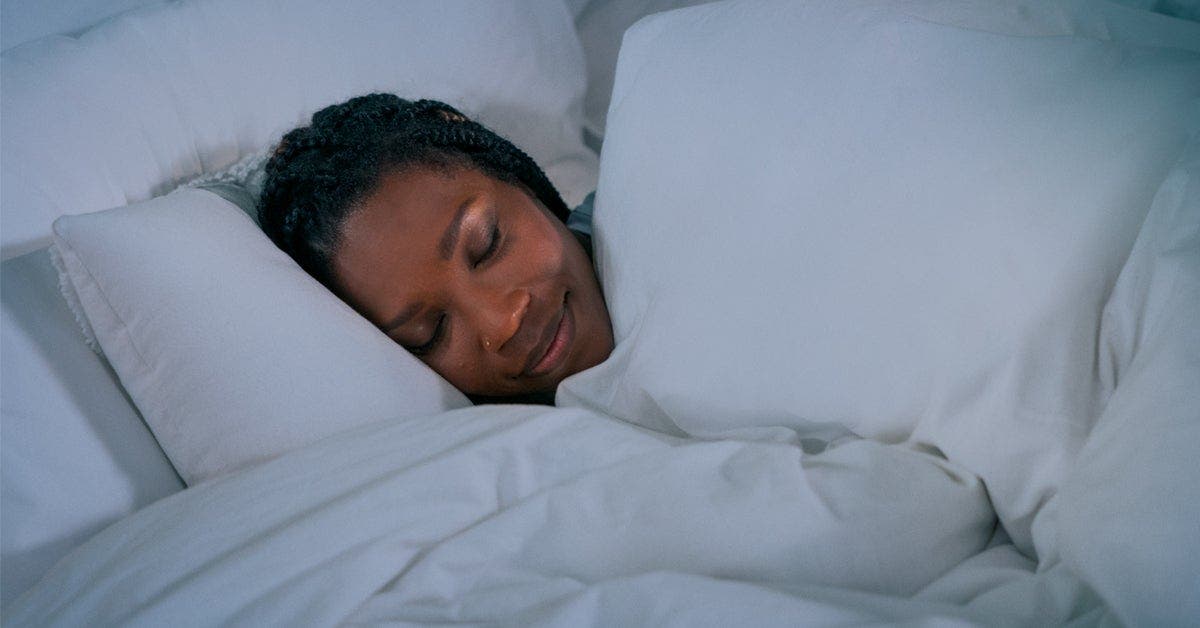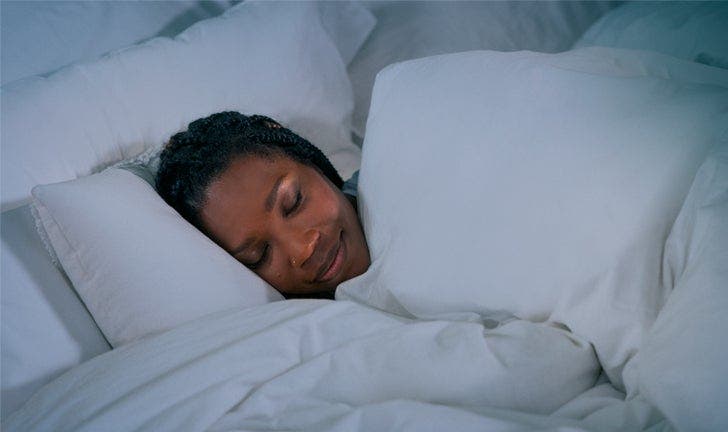Natural ways to drift off to sleep


If you have trouble falling asleep, you’re not alone. According to the Canadian Health Measures Survey, 55 per cent of women and 43 per cent of men ages 18 to 64 reported having trouble falling or staying asleep, anywhere from sometimes to all of the time. Yet there are many natural ways to make it easier to fall asleep. It starts by setting the stage with a consistent routine for winding down at night, creating the perfect sleeping environment and having a plan for just before and after the lights go out.
Winding down
Getting ready for a good night’s sleep starts in the evening hours before you even enter your bedroom. Start by developing a consistent bedtime routine, which is a set of activities you perform every night in the same order before you go to bed. These activities help your brain to recognize that it’s soon time for sleep and may help reduce stress and anxiety that you have about going to bed.
As part of your routine, pick a specific time for bed and for waking up in the morning, and stick to it every day (including weekends, if possible). Other activities that can form part of a bedtime routine include:
- Prepare a to-do list for tomorrow and pick out clothes for the morning.
- Take a warm bath or shower.
- Make a cup of your favourite herbal tea. If you’re having trouble sleeping, avoid consuming caffeine in the afternoon or evenings, and avoid alcohol before bedtime as it can disrupt the quality of your sleep.
- Get some gentle exercise by taking a 15-minute walk outside or doing some yoga stretches to calm your mind and body.
Check out these articles about how caffeine and alcohol impact your sleep.
Create the perfect sleeping environment
Your bedroom should be a sanctuary – a calm and distraction-free zone where you can relax and get into a state of mind that makes it easier to drift off to sleep. Set the mood for sleep with the following tips:
Keep your bedroom cool and dark. Set your thermostat to around 65°F (18.3°C) for the most comfortable sleep. Your body’s core temperature drops slightly in the evening, and a cool bedroom (60°F to 67°F) can signal that it’s time for bed. Exposure to light is another important factor that can affect your ability to fall asleep. Darkness cues your body to increase its production of melatonin, a hormone that regulates your sleep-wake cycle and induces a feeling of sleepiness. Block outside light with room darkening or blackout shades, blinds or curtains. A sleep mask can also prevent the glow from other light sources, such as a bedside clock, from disturbing you.
Learn more about melatonin here.
Power down. Checking your phone before bed stimulates your brain and can cause distracting thoughts or emotions, even if you’re just scrolling through friends’ posts and photos. The blue light emitted from screens also suppresses melatonin, which disrupts your body’s internal clock from telling you it’s bedtime. Aim to turn off all electronic devices 30 minutes to one hour before bed – that includes the television, laptops, tablets and phones. If you’re prone to checking, it may be helpful to leave your phone in another room, or at least on a surface that’s not within arm’s reach of your bed.
Learn more about blue light here.
Treat yourself with aromatherapy. If you want to add a touch of luxury to your sleeping environment, try a spritz of lavender-scented pillow or room spray. Lavender oil is said to have sleep-enhancing properties and its beautiful floral scent may help promote a feeling of relaxation before you hit the sheets.
Check out WW essential oils here.
Tune out distractions. Many people sleep better with a sound machine or app that plays white noise in the background. White noise consists of sounds of different frequency played together at the same time and is beneficial for blocking out disruptive background noise. It also works well for those who prefer not to sleep in complete silence. Other noises, such as the consistent sound of a room fan spinning or air conditioner running will offer a similar benefit.
Learn more about white noise here.
Slip into comfort. There are many options to suit individual preferences, but your bed itself plays an important role in ensuring you are set up for a good night’s sleep. This includes finding a comfortable mattress and pillow with appropriate level of firmness, soft bedsheets in your preferred material and a cozy duvet or blanket cover. For chilly nights, try slipping on a pair of cozy socks or using a heat pack to warm up cold feet before bed. The more comfortable you feel, the easier it will be to doze off once your head hits the pillow.
Get ready for lights out
Once you get into bed, it can be helpful to spend some time getting into a more relaxed state of mind. This takes the pressure off feeling like you have to fall asleep right away and gives you time to focus on something enjoyable first.
- Find what soothes you. For some, that could happen while listening to the calm voice of a radio announcer, music or your favourite podcast. For others, it could be reading a chapter of a good book or writing about your day in a journal. Find what stops your mind from racing and make it part of your routine before the lights go out.
- Mindfulness meditation. Once you turn your lights out, there are various mind-calming practices you can try that involve focusing on being present in the moment. Examples include slowly counting backwards from 50, techniques where you focus on your breath, a sound or a word (like “harmony” or “peace”) and scanning where you notice different sensations throughout your body starting with your face and moving towards your toes. You can learn more about mindfulness for sleep here.
WW members can use the sleep section of their app to access sleep music, meditations, and guided gentle stretches to help you unwind.
- Add natural health support. Get extra support from supplements that are natural sleep aids. Try melatonin, magnesium, or herbal complexes with ingredients such as valerian or passion flower, to help you more easily drift off to sleep.
